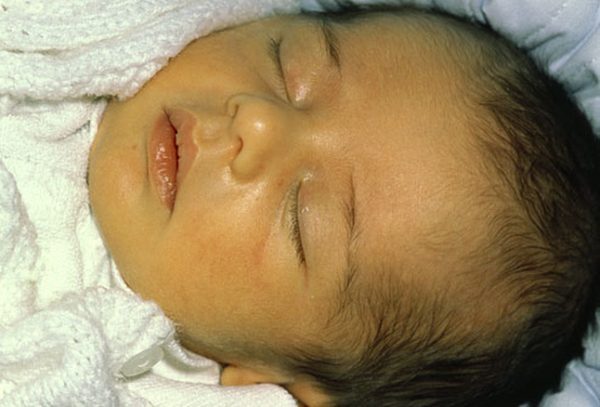
Women in today’s world are facing multiple fertility issues, and one of them is damaged or blocked fallopian tubes. The fallopian tubes are the organs that help connect the uterus and ovaries, and they form an important part of the reproductive system. It is the fallopian tube that carries the egg during the ovulation period to the uterus. The conception of a pregnancy also takes place in the fallopian tube. If the egg is fertilised by the sperm, it moves through the tube to reach the uterus for implantation. So, basically, the tube plays an important role in the entire reproductive process, and when it is blocked, it disrupts the entire process.
Tubal blocks can cause many issues, and in this blog, we try to learn about everything around blocked or damaged fallopian tubes and how damaged or blocked fallopian tubes cause infertility.
Causes of damaged or blocked fallopian tubes
The fallopian tubes are small in size and therefore easily prone to damage and blockage. The usual causes of damage to the fallopian tube are the following reasons:
-
Pelvic inflammatory disease
Pelvic inflammatory disease is induced while sexually transmitted illnesses go untreated. The main diseases that contribute to this condition are gonorrhoea and chlamydia. This results in scarring of the tissue within the fallopian tubes.
-
Endometriosis
The issue of endometriosis happens when the lining of the uterus, or the endometrium, grows outside of the uterus. The uterine lining usually sheds every month when a woman goes through her menstrual cycle. When the line grows outside of the uterus, it becomes difficult to shed during the menstrual cycle. When the tissue grows near the tube, it causes tubal infertility.
-
Surgery
Past surgeries that have been performed to clear uterine fibroids, cysts, endometriosis, and other abdominal conditions can cause scarring of the fallopian tube, which can disrupt the travel of the egg through the tube.
-
Ectopic Pregnancy
When the egg implants itself in the tube instead of the uterus, that kind of pregnancy is known as an ectopic pregnancy. The fallopian tube is small and narrow, which can result in rupturing the fallopian tube, which is life-threatening. An ectopic pregnancy can’t be taken to full term, so the doctors will remove that fertilised egg through a surgical procedure.
-
Tubal Ligation
Tubal ligation is a voluntary procedure done by women to stop future pregnancies. In this procedure, the surgeon either cuts off the end of the fallopian tubes or blocks them. This process can be reversed, depending on the situation.
Symptoms of damaged or blocked fallopian tubes
Most women do not know about blocked or damaged fallopian tubes until they find it difficult to conceive. In some cases, it is known that women experience mild pain on one side of their abdomen. And in some other cases, like endometriosis, there will be painful periods and excess period flow.
Treatments for blocked fallopian tubes
-
Hydrosalpinx treatment and surgery
Hydrosalpinx is when the fallopian tube has a blockage, which causes a fluid buildup. The treatment for hydrosalpinx is either a salpingectomy or a salpingostomy. In salpingectomy treatment, the blocked fallopian tube area is surgically removed. Once the treatment is complete, the woman can conceive with the help of IVF. In the latter treatment, the surgeon creates an opening on the fallopian tube that is in proximity to the ovary. The new opening can help restore undisturbed movement of the egg, but the scar tissue can grow over time and create a new blockage. The surgery requires a six-week recovery period.
-
Tubal Cannulation
This is a non-surgical procedure that is used to treat blockages in the tube in the portion that is closest to the uterus. During this procedure, a catheter is inserted through the vagina’s interior and advanced until it reaches the obstruction. It is possible to pinpoint the exact location of the blockage using an ultrasound or x-ray. The doctor now removes the obstruction with a thin wire. The risks of the procedure are comparatively minimal.
Fertility after treatment for damaged or blocked fallopian tubes
Age, length of the fallopian tubes, intensity of the scarring, etc. play a major role in determining the fertility of the woman and thereby the chances of conceiving a child. Women who have blockages near the uterus have far higher chances of conceiving than those who have blockages far from the uterus and closer to the ovaries. The fallopian tubes should also be 7.5 cm in length. Women over the age of 35 have a far lesser chance of conceiving, even after the fallopian tube treatment.
KJK Hospital has been the best fertility hospital in Kerala and has been striving hard to make the dreams of parenthood possible. Our professional team of well-equipped gynaecologists, fertility specialists, nurses, and other technicians ensures that patients receive the utmost care and the best results. Choose us for the coveted services of our experienced doctors and the promise of the best possible care and results.
Feel free to contact us for appointments and queries.
Phone Numbers: 0471-2544080, 2544706
Email: info@kjkhospital.com
Subscribe to KJK Hospital YouTube Channel for more informative videos on women’s health





